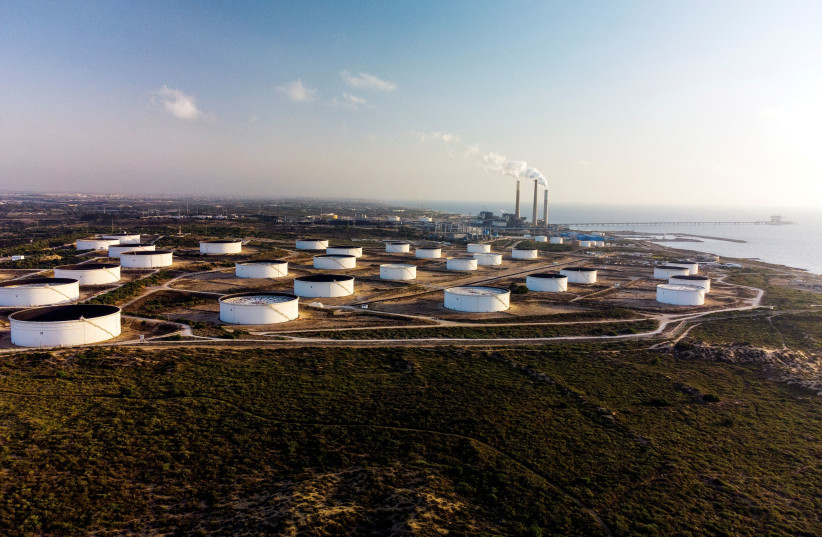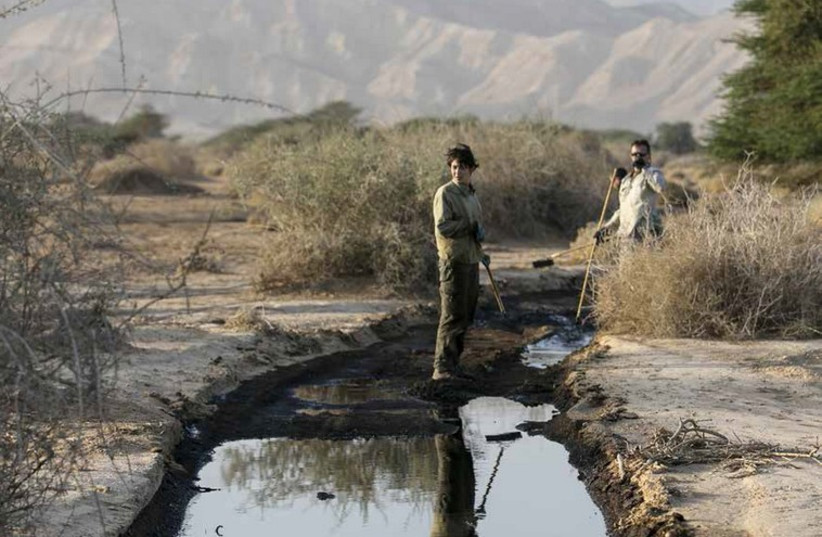The Environmental Protection Ministry found a leak in a tank holding 20,000 liters of oil.
By TZVI JOFFRE Published: FEBRUARY 15, 2022

An oil leak was reported from a tank belonging to the Eilat Ashkelon Pipeline Company (EAPC) near Ashkelon on Tuesday after residents of the city reported a bad smell, according to the Environmental Protection Ministry.
The affected tank holds about 20,000 liters. The extent of the leak is as of yet unclear although it is estimated to be about 700 cubic feet (20 cubic meters). The EAPC is working to contain and clean the leak. The Environmental Protection Ministry is investigating the incident.
The Ashkelon Municipality and the Association of Cities for the Environment Ashkelon District stated on Tuesday that there was a “reasonable concern” that the EAPC tried to hide the leak.
In August, the EAPC reported a leak of about 100 cubic meters of fuel from a pipeline near Ashkelon. About 800 tons of contaminated soil were cleared from the area.
Just last week, the EAPC reported a leak of up to a few dozen liters of oil near the storage tanks belonging to the company in Eilat, according to Shani Ashkenazi, a reporter for Globes.
The latest leak comes as the Beersheba Magistrate’s Court convicted the EAPC and its administrators on charges of water pollution and causing a strong smell in the 2011 Nahal Tzin oil spill on Tuesday.
The oil spill caused some of the largest ecological damage in Israel’s history. According to the indictment, about 722,000 liters of jet fuel erupted from a pipe after it was damaged by construction equipment. The pipeline, which transports jet fuel between Eshel Hanasi and Shizafon, was not properly protected.
An area of about 60 dunams was polluted by the fuel and about 26,500 tons of contaminated soil had to be removed from the area. A significant portion of the fuel remained in the stream and along its banks even after restoration work was completed, putting the aquifers below the stream at risk of pollution. A pungent smell of fuel plagued the area as well for several months.
The court ruled that the EAPC and its managers “failed both to supervise the project and prevent the risk created from it, as well as to prepare for emergencies,” leading to “enormous” damage to the environment.
In November 2019, in the largest class-action settlement ever agreed upon in a case concerning the environment, the Eilat-Ashkelon Pipeline Company (EAPC) reached a deal with a group of plaintiffs – including the Environmental Protection Ministry and the Nature and Parks Authority – to pay NIS 100 million in damages following a lawsuit over a crude oil spill in 2014.
